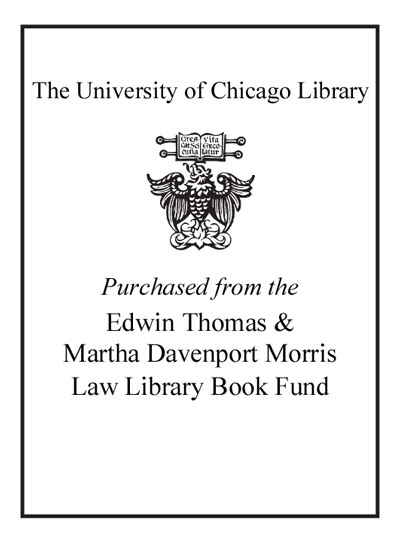Tyrannicide : forging an American law of slavery in revolutionary South Carolina and Massachusetts /
| Author / Creator: | Blanck, Emily, author. |
|---|---|
| Imprint: | Athens : The University of Georgia Press, [2014] |
| Description: | xv, 217 pages ; 24 cm. |
| Language: | English |
| Series: | Studies in the legal history of the South Studies in the legal history of the South. |
| Subject: | |
| Format: | Print Book |
| URL for this record: | http://pi.lib.uchicago.edu/1001/cat/bib/10094895 |
| Summary: | Tyrannicide uses a captivating narrative to unpack the experiences of slavery and slave law in South Carolina and Massachusetts during the Revolutionary Era. In 1779, during the midst of the American Revolution, thirty-four South Carolina slaves escaped aboard a British privateer and survived several naval battles until the Massachusetts brig Tyrannicide led them to Massachusetts. Over the next four years, the slaves became the center of a legal dispute between the two states. The case affected slave law and highlighted the profound differences between how the "terrible institution" was practiced in the North and the South, in ways that would foreground issues eventually leading to the Civil War. |
|---|---|
| Physical Description: | xv, 217 pages ; 24 cm. |
| Bibliography: | Includes bibliographical references and index. |
| ISBN: | 9780820338644 0820338648 |

